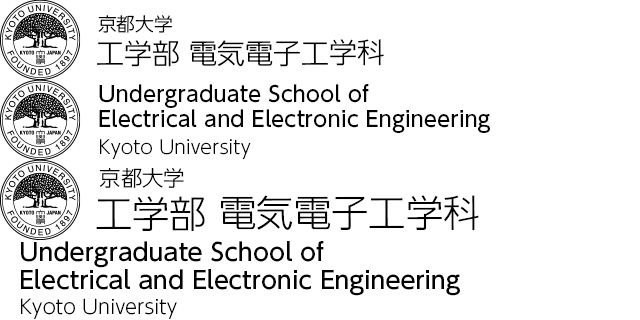Multimedia Science (Yuichi Nakamura Lab)
This lab does research on intelligent information systems for human communication and advanced function networks to support such systems. We perform a broad range of research including processing and recognition of images, voice, and natural language, human behavioral understanding using these techniques, new media creation, next-generation Internet technology, and knowledge support for remote lectures and conferences.
Our research is focused on a diversity of media, including media to monitor people, media for learning, media for connecting people, media for making life simpler, and media for alerts and notifications, as well as basic theory and techniques for realizing these.
Academic Staff
Yuichi NAKAMURA
 Professor (Academic Center for Computing and Media Studies)
Professor (Academic Center for Computing and Media Studies)
Research Interests
Contacts
TEL: +81-75-753-7477
FAX: +81-75-753-7478
E-mail: yuichi+@+media.kyoto-u.ac.jp
Kazuaki KONDO
Junior Associate Professor (Academic Center for Computing and Media Studies)
Research Interests
Contacts
Introduction to R&D Topics
Mental processing and recognition of media (images, video, audio, and language)
We are performing semantic analysis of human behavior recognition, based on image processing, audio recognition, and natural language processing. Artificial intelligence is deeply connected with cognitive science, so our vision will ultimately expand to the concept of a computer capable of fully understanding the conditions of the world.
(Example research theme) Groups of sensors and media embedded in the environment
Sensors and cameras have become inexpensive commodities. In view of this, we are performing basic research on sensor/media systems in which sensors embedded in the environment monitor people and provide assistance as required.
(Example research theme) Wearable media to support memory
Wearable computers can record the experiences of a person. And by coordination with media embedded in the environment, wearable media can assist individuals to remember their experiences and enable groups to share experiences.
New media creation and multimedia technology
We are creating new media for a world in which people, computers, and robots are connected in networks. We are exploring functions that deliver necessary information in a user-friendly way—anytime, anywhere, to anyone.
(Example research theme) Interactive video
We are exploring methods to realize multimedia that can respond to questions just like a teacher. We will develop a function that is able to freely utilize an image database to respond to questions in the course of natural language interactions.
(Example research theme) Questioning media (virtual assistant)
Everyone has had the experience of learning through questions posed by other people. But asking questions is a skill that requires deep refinement. We explore media systems that pose precise questions to people in the real world, to help ourselves and others to gain a better understanding of things.
Next-generation Internet technology
We are doing research on various kinds of next-generation networks, such as ubiquitous networks, flexibly reconfigurable networks, networks that can change in quality while negotiating with applications, as well on basic technology behind such networks.
(Example research theme) Network management to change quality while negotiating with applications
The bandwidth required for networks, particularly in the case of multimedia content, is determined according content quality and the application. At the same time, the useable network bandwidth varies with the communication partner and over time. In view of these conditions, for communications to perform at optimum quality, the network and application need to negotiate and coordinate settings to optimal values. We are investigating a mechanism to realize this kind of function.
(Example research theme) Ad-hoc network connecting multiple sensors
If sensors distributed at random in a real-world space are connected via a network and freely accessible, it becomes easy to realize a diversity of systems by flexibly combining necessary sensors in accordance with various conditions. We are engaged in research to create a system of this nature.
Online education and support technology for remote lectures and conferences
Remote lectures and conferences with overseas links have become an ordinary occurrence. However, from the point of view of natural human communication, the experience this technology provides is still has various deficiencies. We are striving to develop an advanced remote communication system that utilizes intelligent media technology.
(Example research theme) Hybrid online education system for international remote lectures
Is it possible to have advanced remote lectures of the quality of educational TV programs? If the past lectures and file video are available, then it should be possible. Also, it would be more convenient if the user can freely express what they want, and then leave it up to the online system to select and present appropriate material. Our research is focused on these kinds of next-generation distance education systems.
(Example research theme) Intelligent video creation system
Is a computer system capable of doing the job of a film director? We are doing research oriented towards the development of a system that is capable of creating video content based on a recognition of environment conditions and human behavior, and by then automatically controlling a camera and editing in accordance with the particular purpose.
